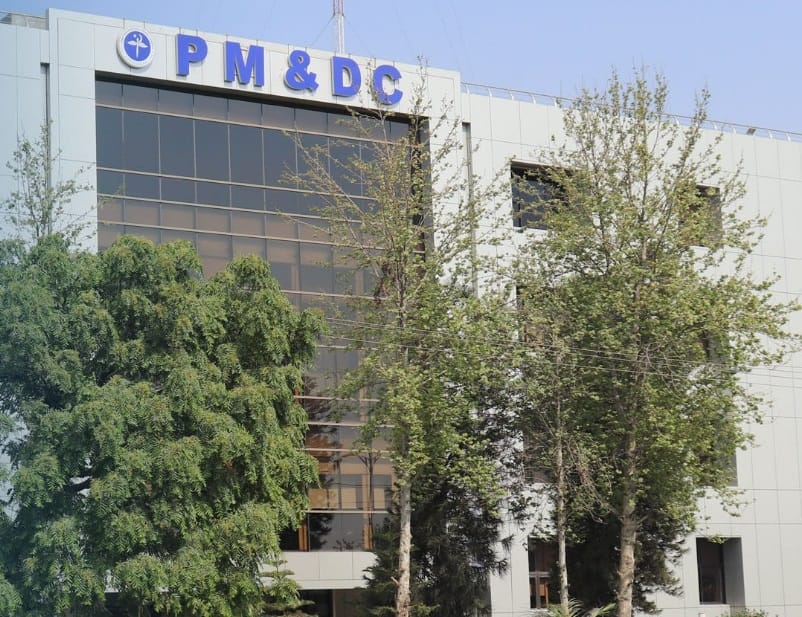
In a significant development affecting medical education in Pakistan, the Pakistan Medical and Dental Council (PMDC) has halted the admission process for MBBS (Bachelor of Medicine, Bachelor of Surgery) and BDS (Bachelor of Dental Surgery) programs across the country. This decision comes in response to directives issued by the judiciary, adding another layer of complexity to the ongoing admissions season.
Background of the Judiciary’s Involvement
The judiciary’s order stems from legal challenges raised against the PMDC’s revised policies for the admission process. Over the past few months, several stakeholders—including private medical colleges, prospective students, and parents—had raised concerns about the PMDC’s admission regulations. The issues mainly revolved around the admission criteria, the Medical and Dental College Admission Test (MDCAT), and fee structures that were seen as unfavorable by many.
A group of petitioners approached the judiciary, seeking a stay on the admission process. Their argument centered around the PMDC’s failure to provide clarity and transparency in its guidelines. Additionally, the petitioners raised concerns about the fairness of the MDCAT exam, which is a mandatory test for medical students aspiring to secure admissions in MBBS and BDS programs.
Key Reasons for Halting the Admission Process
There are several critical factors that led to the judiciary’s decision to halt the MBBS and BDS admissions across Pakistan:
- MDCAT Controversy: The MDCAT exam, conducted annually for medical students, has been a focal point of dispute. Critics argue that the test’s preparation, execution, and result compilation have been prone to errors and mismanagement. Additionally, some students have alleged that there was inadequate time for preparation due to shifting policies from PMDC.
- Inconsistent Admission Criteria: The PMDC revised its admission criteria for MBBS and BDS programs, which included changes in minimum eligibility percentages and the weightage given to various academic qualifications. Many private medical institutions were unhappy with the new criteria, which they believed would limit the number of students they could admit.
- Fee Structure: The fee structures of private medical colleges were also contested in court. Some petitioners accused these institutions of charging excessive fees in violation of government-set limits, prompting the judiciary to intervene in the admission process to prevent financial exploitation of students.
- Lack of Coordination: Another major concern was the lack of coordination between PMDC and other relevant educational bodies, including provincial health departments. This created confusion among students and institutions regarding the admission process.
PMDC’s Response to the Court Orders
In compliance with the court’s ruling, the PMDC has suspended the ongoing admission process and announced that no further admissions would be processed until the legal matters are resolved. The PMDC has also issued a statement acknowledging the court’s concerns and assuring that it will work on resolving the issues raised by the judiciary.
PMDC officials have expressed their intent to cooperate fully with the judicial proceedings. They have vowed to take immediate steps to address the concerns regarding transparency, MDCAT procedures, and fee regulation in private medical institutions.
Impact on Medical Aspirants
This sudden halt in the admission process has left thousands of aspiring medical students in uncertainty. With admissions now paused, students who were eagerly awaiting their results and application statuses face delays that could extend well beyond the typical academic calendar. Many students, particularly those who had planned their academic futures around specific timelines, are now worried about the disruption this will cause in their studies.
Parents, too, are concerned about the financial implications, especially those who had already arranged for fee deposits or housing in anticipation of starting medical school.
Private Medical Colleges’ Stance
Private medical and dental colleges, which had already initiated their own admission processes, have expressed frustration over the court’s decision. They argue that the delay in admissions will not only affect their operational timelines but also increase the financial burden on institutions.
Many private colleges have also pushed back against the PMDC’s recent regulations regarding admission criteria and fees, claiming that these rules are overly restrictive and limit their autonomy in managing student intake.
Legal and Future Ramifications
The judiciary’s involvement in halting medical admissions is unprecedented, and its ripple effects are likely to be felt for some time. Observers suggest that the legal proceedings could drag on, further delaying the admission process, and potentially affecting the academic year for medical students across the country.
Many legal experts believe that the case could set a precedent for future judicial oversight of educational policies in Pakistan, particularly in the medical sector. The case also highlights the need for better coordination between regulatory bodies like the PMDC and educational institutions to ensure that students are not caught in bureaucratic red tape.
Conclusion
The halt in the MBBS and BDS admission process is a crucial moment in the ongoing debate over medical education in Pakistan. While the judiciary’s decision is aimed at ensuring transparency and fairness, the immediate impact on students and medical institutions is undeniable. It remains to be seen how the PMDC, in coordination with the judiciary and private medical colleges, will navigate this challenge and restore the admissions process in a manner that satisfies all stakeholders involved. For now, medical aspirants across Pakistan must wait as the legal battle continues to unfold.
